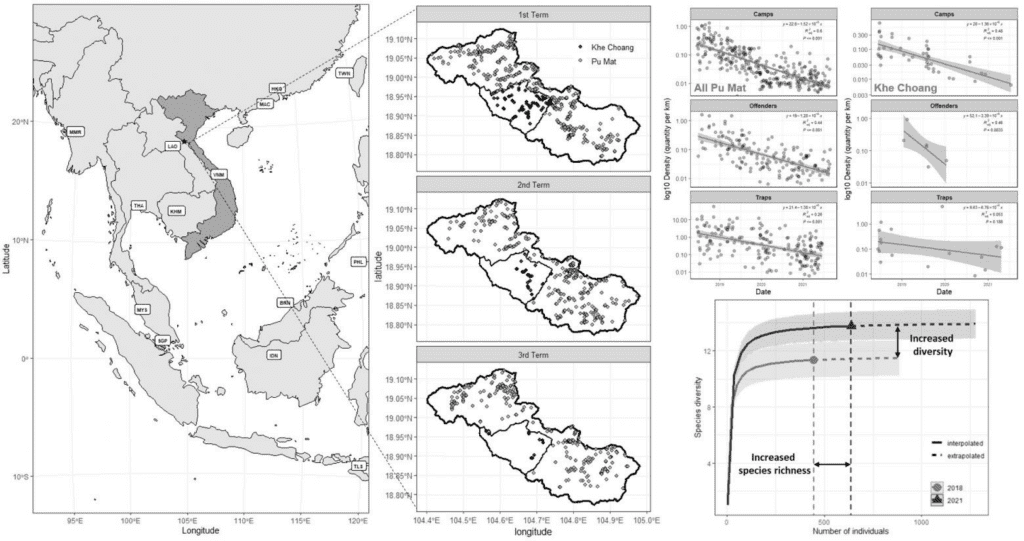By installing an NGO-based anti-poaching team, and using various anti-poaching technologies in Pu Mat National Park, we were able to effectively maintain spatially explicit records of poaching activities, profiles of offenders, strategically implement automated poaching alert systems, and significantly decreased the number of poachers, traps, and camps within the core zone of the protected area while also substantially mitigating poaching activities throughout the entirety of the park. In doing so, we managed to identify and apply pressure on high-risk poaching areas, create avoidance of poaching in locations where high-priority (Endangered, and Critically Endangered) species were present, maintain a working database of offences and offenders within the protected area to understand more about the social aspects of poaching, and built capacity for all operating rangers in the protected area to use the same methods and technologies themselves.


